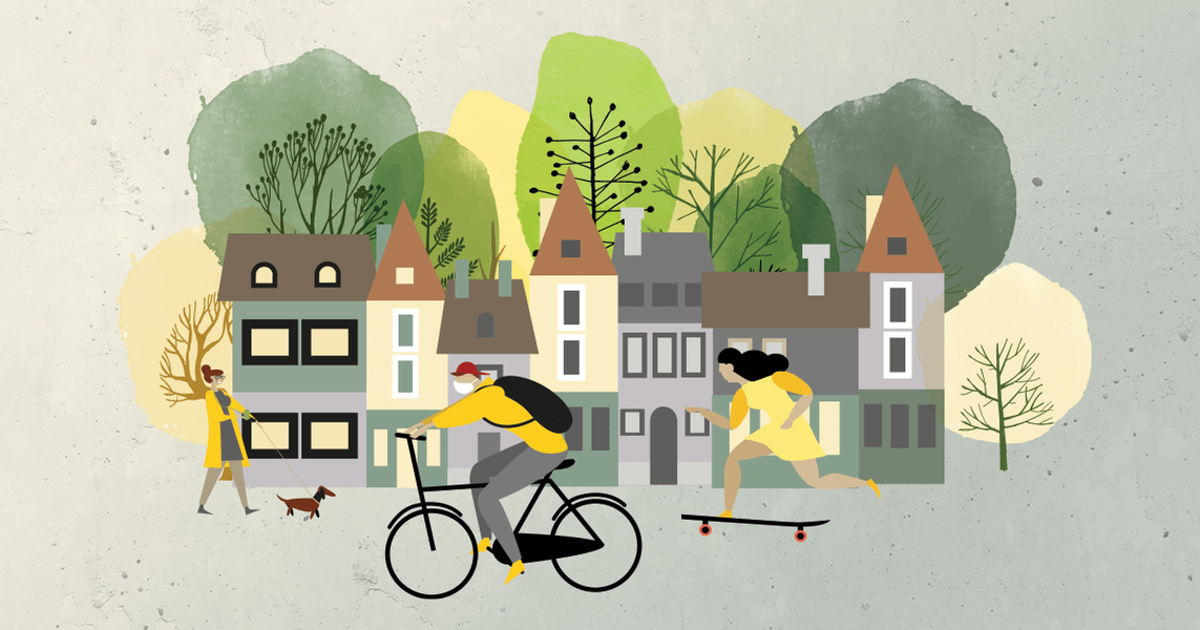
“I can’t wait until we are back to normal” is said often these days. The pandemic will be over at some point, and the quarantines will get lifted, but we are not going to “go back to normal.” It is not possible.
We will have a new normal that comes of this situation, just as we have throughout history as we have overcome great tragedies. The COVID-19 pandemic will be written about in history books, and your grandchildren will read about it. We are living through a historic time right now. And as with every historic time, our world, and your families, will be different on the other side.
The question is, what kind of normal will you help create for your kids? You’re laying the foundation for that now. Will they learn strict adherence to schedules and inflexible routines are expected for success, or will they learn it is acceptable to be a messy human and make mistakes that they can recover and grow from? None of us are experts on how to do this and do it well, but that’s okay. Everything. It’s all okay.
Whatever you are doing to get through this is okay for right now. And just to be sure, here are 10 tips to get you through the new “normal.”
1. Don’t sweat the “small” stuff. It’s okay if your child has a little more screen time than normal if it’s quality time and not just brain rot. There’s a big difference between Zoom calls with friends and five-straight hours of anime. The former can help foster a sense of normalcy and routine, the latter accomplishes little more than passing the time.
2. Let go of expectations. This is a time when nothing is “normal,” so the expectations of a normal routine might not be reasonable right now. This will go a long way toward your peace and sense of calm as well. While the normal routine might be dinner at 5 and bed at 7, or maybe there is no screen time during the day, our new circumstances will require some added flexibility. It might be necessary for you to let your child spend time watching a movie so you can attend a work meeting. While you would prefer not to, it’s okay if that is the option you have right now.
3. Redefine productivity. That word does not mean what it did a few months ago. Many have transitioned to remote work and found that without all the normal resources at their disposal — and a host of new distractions — they cannot be as productive as before. Meanwhile, you’re still trying to run a household and keep the tiny humans alive.
Kids won’t be as productive either.
It’s a huge misconception that kids will be as productive at home as they are in school. There are too many distractions and not enough support to facilitate the same productivity. It’s important during this time for us to reevaluate what a learning day looks like. This might not be eight full hours of work. It might be, depending on the age of the child, 15 minutes per hour on average. The learning opportunities are vastly different now, and not all districts are equal in resources or plans for learning. Many teachers are finding it difficult to convert their teaching to productive remote learning. There are technology gaps and issues and interruptions on both ends as well. The learning process is a delicate thing and is easily disrupted; it will take a while for it to stabilize and find balance again.
It will happen, but it won’t necessarily be a seamless transition. While your child might not be spending a solid hour a day in science learning, they might be helping you bake cookies, which is still a science-based activity. Allow for changes in the learning and realize it might not be as simple as it used to be to see the classroom work because it is now happening in your home.
4. Let the grief happen. There are sick people dying alone, goodbyes exchanged over FaceTime — if it’s even possible to say goodbye. This has never happened in our lifetimes. We hear about mounting death tolls every day. Many of us will be directly impacted by a coronavirus-related death. These are losses that are permanent, tragic, and happening every day.
While still painful, it’s easier to understand the grief process with those losses. We also have a whole host of nonhuman losses that we need to recognize. Our whole lives were upended without much warning, and everything changed quickly. We continue to learn new restrictions, and our freedoms are being limited. There is grief in that.
Kids didn’t get to say goodbye to friends, teachers, class pets, or the school that helped give them their sense of identity. Parents didn’t get to ease into being educators on the homefront. Everyone was just thrust into this hybrid work-school-home situation. There’s grief for the loss of all you knew as normal. A mom told me, “I desperately miss my Target runs; it was my only alone time.” She’s grieving that loss. It may sound silly, but as a wife and mother of three young kids, she’s experiencing a real loss in her quality of life. Don’t discount the losses — yours or your children’s.
5. Be gentle with yourself. There is not a Pandemic 101 book to help you know what to do. You’re going to mess up. You might lose your temper. Dinner may end in disaster. You’re going to be human.
Usually, we have space and distance to find our grace. We can gather the family and grab pizza if dinner is a failure. But right now, there’s not much space or distance from those we’re quarantining with. Realize that you are handling a lot. You’re not superhuman and are going to make mistakes. Try pushing pause on repeating those negative thoughts and talk to yourself like you would your child if they had made the mistake you did. We are far gentler with others than we are with ourselves.
6. Adapt and overcome. There might be days when nothing works right. Maybe the internet goes out, or your toddler walks in naked on your Zoom meeting. Things are going to happen.
When they do, plan now to adapt and overcome. That means you plan now, when nothing is wrong, for what you will do when something goes wrong. So, if the internet does go down, your child will need to work on something (so you can work as well). What could that look like? And if your toddler does flash your meeting, no one’s going to be surprised — they will just be thankful it wasn’t their child this time. Everyone’s doing the best they can. We are sharing a lot of grace with others right now. Try to plan to overcome and not succumb to a bump in your day. This will make it easier for everyone to remain calm and get through the situation.
7. Don’t compare. Don’t, under any circumstances, allow you or your family to compare your lives to anyone else’s. Not a single person has their act together right now. If they make it look like they do, great for them — it is all an act! They are not you and aren’t living your life. You are a rock star and are kicking this pandemic’s metaphorical tush. Remember, none of us is perfect. We’re all messing this up, together.
8. Love your children. This sounds ridiculous — of course you love your children. The idea behind this point is that they might not be very likeable sometimes. We don’t all deal with crisis well, and you’re in a contained space with lots of emotions and lots of being human happening. This can lead to some unfavorable behaviors. It’s very easy to forget to actively love your children because you are busy raising them, especially when tensions are high. This will look different for all of you. For some, it’s five minutes in the morning over your coffee where you randomly chat about nothing; you might realize that was the most important five minutes of their whole day. For some it might be a special song in the bathtub or making hot coco after a rough day. Whatever this looks like for you, make a concerted effort to connect with your child(ren) in a special way every day. These will be the photographs in their minds they remember most. These will be the stories they tell your grandchildren about “growing up in the pandemic.”
9. Find a safe space for you. This is important — and difficult! Find a place where you can be alone for at least five minutes a day. If you must hide in the bathtub, do it. Find a place where you don’t have to be anything. Where you don’t have to answer questions, tie a shoe, solve a problem, make a meal, fix a whatever. You can just breathe (we discussed the importance of breathing!), close your eyes, and be alone in your own skin. It needs to be at least five minutes, more if possible.
There are so many demands and pressures on you right now; you deserve a timeout. This is vital to your well-being. It will help you find your voice in the chaos and help you to be better able to do all the other steps.
10. This is probably the most important step: Play! Everyone’s lives are upside down. A release is needed; your children need to hear you laugh, see you smile, and feel lightness and warmth.
What you play isn’t important: a board game, tag, fetch with the dog, or a pile-on tickle match with your children. You need it as much as they do. There aren’t as many healthy and safe stress relievers in the world right now, but thankfully playing with your kids is the best one. This is a great way to remind them, and yourself, that everything really is going to be okay.

Jamie, American Mensa’s Gifted Youth Programs Manager, has been a state-licensed teacher for more than 15 years. She received her Gifted Education certification in 2016. She was recognized as the 2008 Teacher of the Year at Bowie Middle School in Amarillo, Texas, and was a finalist for the 2011 Texas Speech Communication Association’s Teacher of the Year.